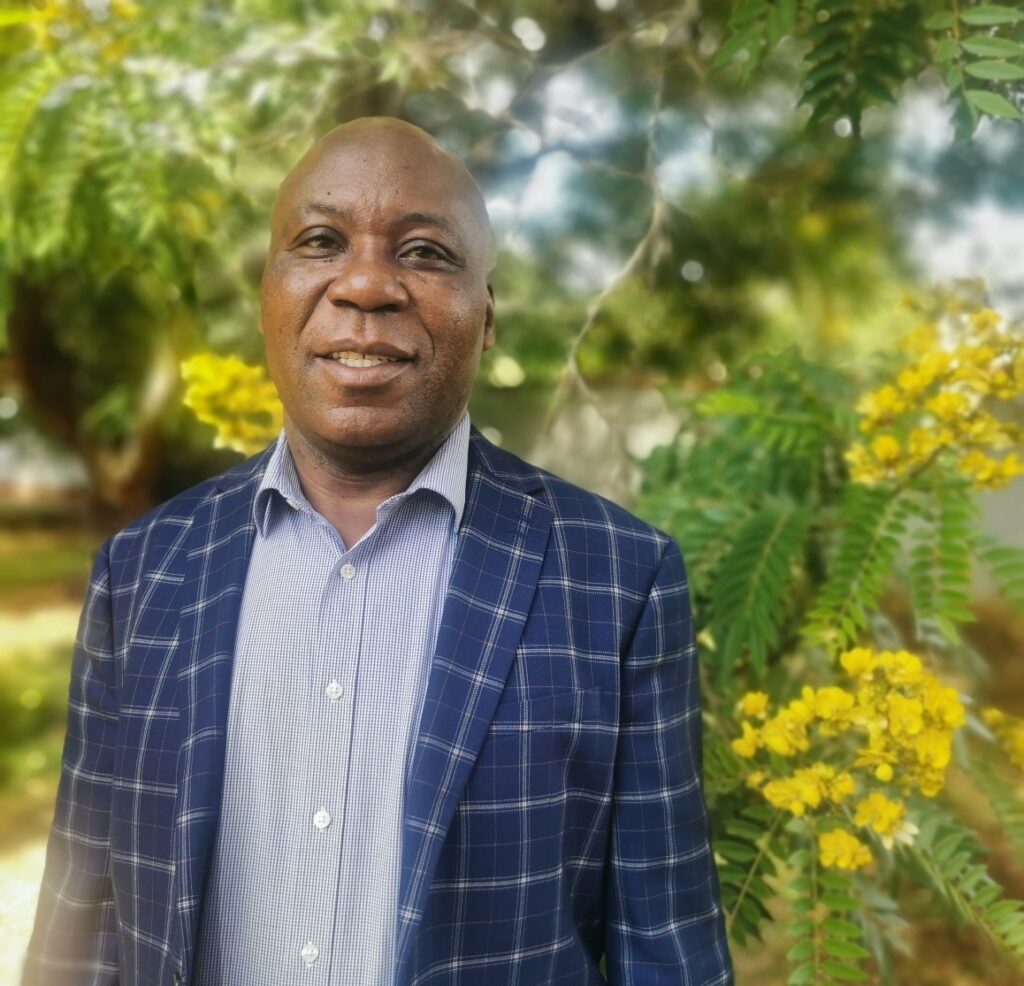Health and Wellness
Dr Solanki calls for advertising regulations relaxation
I ask; how will the foreigners know when Zimbabweans don’t know what facilities are available in Zimbabwe?

PROMINENT medical doctor Dr Vivek Solanki, recently implored Government to review local advertising for medical services providers.
Dr Solanki said this during his awards acceptance speech at the fourth edition of the Zim Community Trailblazers Awards ceremony held recently
He said that doctors were not allowed to advertise, their services in order to educate the public on the world-class facilities that are available locally.
“People like us, have to push the button and enlighten the authorities that we have to make the changes, we have to assist.
“When we land in Johannesburg, Nairobi and India, and Dubai, there are billboards and overall advertising for the medical facilities.
He lamented the fact that the same facilities were available in Zimbabwe yet the locals were no aware of that.
Solanki, who has been a medical practitioner for 37 years, added that this was because of limitations of dissemination of information about what they do.
“Our President talks about medical tourism and the Trauma Centre is big in medical tourism, a lot of foreign patients from all over come here.”
I ask; how will the foreigners know when Zimbabweans don’t know what facilities are available in Zimbabwe?

Breaking News
Pastor Chris vindicated on Covid 19 vaccine dangers
Ministering during a session of the 5-day broadcast of the ‘Your Loveworld Specials with Pastor Chris’ (Season 3, Phase 3) held in 202, the man of God asked “what will happen to those who already took the vaccines in five years’ time?”

By ALBERT MASAKA
PERSISTENT concerns raised by the Senior Pastor of Loveworld Ministry, Chris Oyakhilome popular as Pastor Chris on the dangers of Covid 19 vaccines, have became a reality as global pharmaceutical giant AstraZeneca has removed its vaccine worldwide after it admitted in court that the jab can cause a rare and dangerous side effect linked to several deaths in the UK.
AstraZeneca’s vaccine, once touted as a ‘triumph for British science’, recently came under the spotlight for a side effect that causes blood clots and low blood platelet counts.
Following 80 deaths linked to the side effects more than 50 alleged victims and grieving relatives have sued the company in a High Court case.
Ministering during a session of the 5-day broadcast of the ‘Your Loveworld Specials with Pastor Chris’ (Season 3, Phase 3) held in 2021, the man of God asked “what will happen to those who already took the vaccines in five years’ time?”
Pastor Chris called on the world to awaken to truth by asking the right questions about vaccines.
“Normally vaccines would be tested on animals for 10 years before their widespread distribution,”
He added that the drug manufacturers had fast-tracked the untested vaccines as they had sinister agenda for people around the world to never return to normal life again.
In less than five years spoken of by Pastor Chris the jab, developed by Oxford University, can no longer be used in the European Union after the company voluntarily withdrew its ‘marketing authorization.
According to international media reports AstraZeneca admitted in court in February that the vaccine can cause Thrombosis with Thrombocytopenia Syndrome – which has been linked to more than 80 deaths in the UK as well as hundreds of serious injuries.
However, AstraZeneca denies that the decision to withdraw the vaccine is related to the court case, insisting that the vaccine is instead being removed from markets for commercial reasons.
Health and Wellness
Black tax: Generational curse or blessing?
Black tax has impacted a lot of the black working class psychologically, emotionally, and economically.

Black tax is a concept that frequently sparks debate; some people perceive it as an imposition, while others see it as an expression of ubuntu, the African principle of community duty and connection. “I am because you are’’. This a phrase is common in the African Community. The spirit of ubuntu is what makes the collectivistic culture in the African community. Most people are raised to embrace this concept. Black tax has impacted a lot of the black working class psychologically, emotionally, and economically. We examine the intricacies of the black tax in this piece, looking at its drawbacks as well as how it might help black communities develop a feeling of unity.
The term “black tax” describes the financial obligations that members of black communities frequently encounter when it comes to providing for their immediate, extended, or community members. This phenomenon is common in many African cultures, where those who succeed financially are sometimes expected to distribute their wealth to less fortunate members of their family or group. In Zimbabwe these obligations are mainly placed on the eldest child. They are usually expected to take their siblings through school and help them financially as much as possible. Parents also expect to be taken care of by their kids(too informal change to offspring or chdn) as a sign of appreciation for raising them.
#The Burden of Black Tax
Various conversations have taken place on different social media platforms. One day I met a guy who was drowning in debt and he exclaimed ‘If my parents had planned their lives financially, I would have been far in life’. This statement made me think a lot about the impact that black tax has on our generation, thus I pondered on the question is it really a curse or a blessing. The obligation to provide financial support to family members or community members may impede an individual’s capacity to accumulate savings for personal necessities, such housing, education, or retirement. This cycle of financial reliance can prolong poverty in families and communities, making it challenging for people to escape the grip of financial difficulties thus the black tax is sometimes seen as a generational curse.
The impact of black tax is more than just financial. Individuals may also feel emotionally pressured and obligated. The expectation of providing financial support for family members can lead to feelings of guilt, stress, and even anger. These emotions can strain relationships and have an influence on overall well-being, leaving one feeling imprisoned in a never-ending cycle of financial responsibility.
Women in the younger generation who enter the job market frequently suffer additional financial pressure as a result of the Black Tax. They are expected to pay a portion of their earnings to support their families, which may limit their ability to save for their own needs or invest for the future. Women’s chances for job advancement may be hampered by the financial requirements imposed by the Black Tax. They might be forced to put their family’s needs ahead of their own academic or professional advancement, which could result in a vicious circle (cycle) of restricted economic empowerment (poverty).
Men’s relationships and social standing in Zimbabwe can be impacted by the expectation that they will support their families financially. Family ties may get strained or family members may stop trusting them if they don’t live up to these standards and restrictions. For men who pay the Black tax, the pressure to meet these commitments while also pursuing personal financial objectives can be emotionally and psychologically taxing.
However, since black cultures have a strong feeling of solidarity and community, the black tax can also be considered as a blessing. The custom of distributing riches among relatives or fellow citizens is based on the principles of altruism, empathy, and reciprocity. People can help elevate their loved ones and improve the general welfare of their community by making financial contributions to the well-being of others. This makes the black tax a social responsibility and a means of giving back to others who have helped and encouraged one’s achievement.
From an Ubuntu standpoint, the black tax is an example of this ideology in action. It symbolises a shared obligation to guarantee the prosperity and well-being of the entire community. People keep their personal circles and, by extension, the larger community, growing and stable by providing financial assistance to family members and community members. This attitude of ubuntu strengthens social ties and encourages a sense of shared purpose by fostering a spirit of reciprocity and solidarity.
#Navigating the impact of Black tax for the greater good
#Breaking the Cycle: Addressing the long-term effects of the Black tax requires breaking the cycle of dependency. Individuals can lessen the need for continuous financial support by empowering their families to become self-sufficient through investments in education, business, and skill development.
#Redefining Ubuntu: Although Ubuntu places a strong emphasis on group responsibility, it is crucial to reinterpret it in a way that encourages individual development in addition to community assistance. This means acknowledging that people ought to be allowed to follow their own goals and desires while yet making a positive impact on their communities.
#Honest Dialogue: Honest and transparent discussions regarding the Black tax in families, communities, and society at large can promote understanding and lead to solutions that benefit all parties. Promoting open communication enables people to voice their worries, share their goals, and work together to discover solutions that strike a balance between individual development and group support.
#Financial Planning and Investment: Encouraging individuals to engage in financial planning and investment strategies can help them navigate the obligations of Black tax more effectively. This includes setting financial goals, creating budgets, exploring investment opportunities, and seeking professional guidance to maximize their financial resources.
#Support Networks and Communities: Establishing support networks and communities where individuals can share their experiences, seek advice, and find emotional support can be instrumental in managing the challenges associated with Black tax. These networks can provide a sense of solidarity and create spaces for individuals to discuss strategies for balancing personal aspirations and familial obligations.
#Education on Financial Literacy: Incorporating financial literacy education into school curricula and community programs can equip individuals with the knowledge and skills to make informed financial decisions. Understanding concepts such as budgeting, saving, investing, and debt management can empower individuals to navigate the complexities of Black tax more effectively.
#Celebrating Success Stories: Highlighting and celebrating success stories of individuals who have managed to strike a balance between personal growth and community support can inspire others and provide guidance on navigating the challenges of Black tax. Sharing these stories can foster a sense of hope and possibility, encouraging individuals to pursue their dreams while still contributing to their communities.
The black tax is a complex phenomenon with responsibilities and opportunities for community support modelled after Ubuntu. It can be emotionally and financially taxing, but it also symbolises our interconnectedness and our shared need to support one another. Black taxation can be used to advance community development by changing the way people think about it and encouraging financial empowerment. In the end, understanding the actual meaning of Ubuntu within black communities and negotiating the difficulties of the black tax require striking a balance between individual goals and group support.

The writer, Melody Mhishi is a Specialist Wellness Counsellor and has extensive experience in mental health issues. She is an MSc. Counselling Psychology student at Great Zimbabwe University.
Health and Wellness
Tackling gifted, talented children’s needs
This article seeks to explore why some gifted and talented children feel emotionally overwhelmed and how their parents may help them to cope.

By Austin Gara
Introduction
Gifted children are those children who have the potential and ability to grasp information significantly faster than their peers. They are born with above-average exceptional natural abilities in one or more areas such as Mathematics and languages. Talented children develop their natural abilities such as creativity, sport, music, art, or leadership to profound levels. A child can be gifted and/or talented in many areas. Most gifted and talented children quickly realise that they are different from most of their classmates or other children of their physical age. They crave for intellectual challenges, depth and intensity. Many, therefore, feel socially isolated. The challenge is that some profoundly gifted children struggle socially because they fail to find peers that are at their mental age level. Life experiences and research shows that people seek relationships with others who have similar life experiences. Therefore, it may be quite challenging for gifted and talented children (and adults for that matter) to find like-minded peers.
Many gifted and talented children quite often struggle with worry, overthinking, or cautious alertness. For some, over-thinking may transition to anxiety. This anxiety may develop in an atmosphere of a supportive and loving family, absence of traumatic life events, or absence of a family history of anxiety and depression. It is just something found in gifted and talented children. This article seeks to explore why some gifted and talented children feel emotionally overwhelmed and how their parents may help them to cope.
#How do I know that my child is gifted and talented?
It may not be so easy. However, here are some observable behaviours that may help.
The child asks a lot of questions. You almost get tired of the questions. He/she gets frustrated when his/her work is less than perfect or gets a low mark. The child prefers to work alone rather than in groups and gets completely absorbed in his/her activities and thoughts. These are the kind of children who often burn pots whilst cooking and reading at the same time. The child finds it difficult to conform to majority opinions. Most often, they challenge their teachers’ solutions or opinions, landing themselves in trouble with school authorities.
#Psychometric Assessments
Once behavioural observations point your child to the possibly gifted, the child needs to go through carefully developed, benchmarked tests to determine the degree of giftedness. The tests may include: achievement tests, non-verbal IQ tests, and standard IQ tests. These tests are administered by trained professionals such as your child’s school psychologist or counselling psychologist.
#High Standards
Gifted children set very high standards for themselves, being aware of their personal abilities although sometimes their teachers and parents raise the bars. Even those who may hide their talents from others or underachieve are very much aware of their potential. They will achieve exceptionally well with minimum effort.
#Shame and Anxiety Cycle
For most gifted and talented children, overthinking and anxiety leads to feelings of shame. The child’s state of self-consciousness is heightened by peer pressure, teenage hormones, their own high expectations, and social media. So, when they appear to have made a mistake, perceive to have failed, or to struggle academically, they feel ashamed of themselves, become anxious, and their sense of self becomes distorted. If caught in this cycle of shame and anxiety, the gifted and talented children remain in a seemingly endless battle against themselves.
How Can I Help?
Parents often find it very difficult to talk to their gifted and talented children out of the shame and anxiety cycle. The children will not easily accept failure or anything less than perfect. They are perfectionists. Expressions of love may not change the children’s strong and intense emotions.
Below are a few tips that might help
- Create a home environment that is free of shame – an environment that allows for the expression of different views including perceptions of shame and how to manage them. Children’s emotions should be treated as understandable reactions that can be managed.
- Let your child know that you understand their feelings and that you are there to help them go past their distress. The child’s feelings should be respected and you should not try to solve their problem immediately.
- Help your child to identify specific skills and strategies that will help them to survive or cope. The child should be able to brainstorm and come up with counter-statements that challenge negative thoughts and overcome overthinking and shame-based reactions.
- Take your child out to a relaxing place such as a game park and use calming phrases encouraging the child not to worry anymore about the past or trying to predict the future.
- Help your child to plan ahead for anxiety-triggering situations such as exams or stressful social gatherings such as funerals.
- Demonstrate to your child that you can laugh at your own mistakes, bounce back from failure, and change course when necessary. Be your child’s role-model when you are faced with difficult life experiences.
Conclusion
Some of the tips and strategies listed above may or may not work for your child and family situation. Your gifted and talented child may benefit from the professional services of a Registered Psychologist, especially when you notice signs of disabling anxiety or clinical depression. These include excessive mood swings, loss of interest in previously enjoyable activities, hopelessness, disturbances in sleep and appetite, and a sudden drop in academic grades or drastic changes in behaviour. Anxiety and shame need not reduce your child’s love of life.

Austin Gara is an MSc Counselling Psychology student at Great Zimbabwe University and he writes in his own capacity. He can be contacted via email: austin.gara@microcom.co.zw
-

 Tourism1 year ago
Tourism1 year agoAntelope Park joins White Rhino fight
-

 Breaking News10 months ago
Breaking News10 months agoZim Community Trailblazers Awards (ZCTA) Call for Entries (5th Edition)
-

 Health and Wellness1 year ago
Health and Wellness1 year agoLeaked nudes: Traumatic impact, healing pathways
-

 Entertainment4 years ago
Entertainment4 years agoCharambas ZCTA maiden winners
-

 Breaking News12 months ago
Breaking News12 months agoMnangagwa approves Starlink Zim operations
-

 Entertainment1 year ago
Entertainment1 year agoSetina Mandiveyi plots to shine
-

 Tourism1 year ago
Tourism1 year agoWhite Rhino grazing at Zim’s biggest private game reserve
-

 Zim Community Trailblazers Awards1 year ago
Zim Community Trailblazers Awards1 year agoDr Peta: First Zim to obtain Disability Studies PhD












Patient Moyo
March 28, 2024 at 7:56 pm
Aren’t the patients supposed to be referred by other practitioners? Should Dr. Solanki not make his colleagues aware of the services that are available so patients are seen at Trauma Centre’s facilities as a necessity? There is a risk of supplier induced demand when doctors start advertising. Patients who are not in need of a service may be lured by testimonials etc to seek inappropriate care. Will this not overwhelm the medical aid societies?